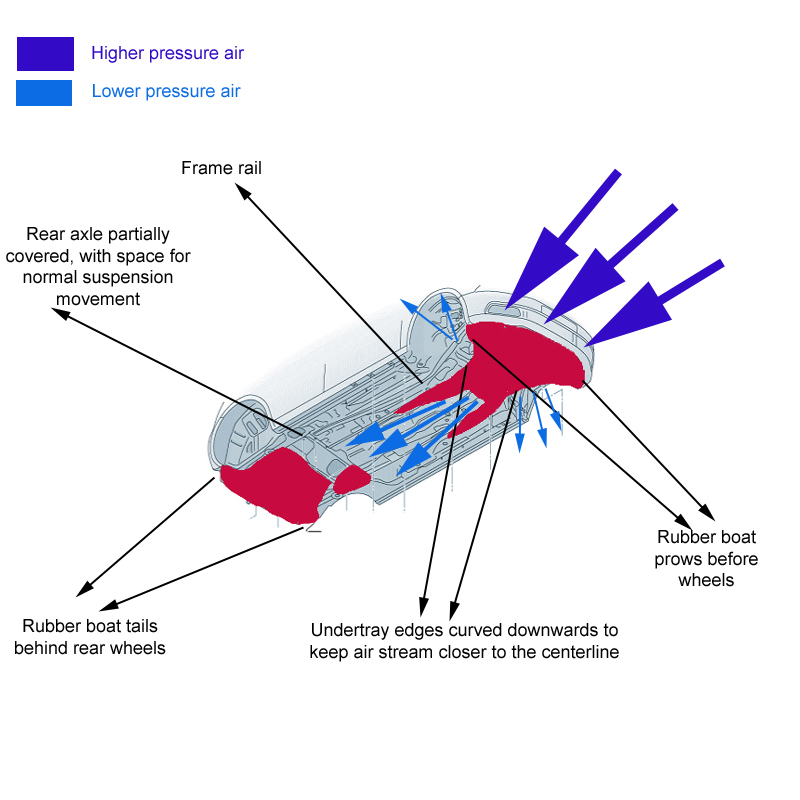Just came back.
Had some very unpleasant adventures with the car as the last wave of the pandemic unfolded. The car is now on its second coolant radiator, second set of power steering lines, second set of coolant plumbing, third oil cooler and fifth timing belt and kit of its life and let's cut the details.
Undertrays and other under car bits and bobs have been slightly improved. Now the front undertray is about 3 in longer, almost below the front end of the catalytic converter. It's safer to leave most of the catalytic converter surface exposed to air. There are also two trapezoidal "wing" undertrays on the two frame rails of the car, on the sides of the catalytic converter, so to keep most of the air stream as close to the centerline of the car as possible. The proof they work is the fact just after fitment the wind noise at high rpm and speed decreased even further. Also the fitment of aluminum undertrays around the rear suspension and the bends of the exhaust is tighter. The weight at the rear has also been slightly increased.
 This is a rough sketch of the general shape of the undertrays. In the light blue areas the bellypan of the car had already been mostly flat.
This is a rough sketch of the general shape of the undertrays. In the light blue areas the bellypan of the car had already been mostly flat.
A mixed run, about 25% city streets with very little traffic and 75% highway with some traffic, has yielded visibly better fuel economy. Previously same traffic conditions and driving style (highway speeds with some use of the turbo) might have given 30 to 32 mpg on the dashboard indicator. This weekend it has shown about 37 mpg and then about 34-35 mpg on the return run.
Never in the last 18 years have I seen such figures in a normal run. 36-37 mpg could be done in the past only if I did all efforts to hypermile, and this negated all reasons to buy a turbocharged engine at all.
As we can see, compared to 30-32 mpg before 2020 and factory given highway fuel economy of 27 mpg, the labor, materials and Cd improvement (whatever it is) just paid for themselves.
LATER EDIT:
Repeated the test on a different road to make sure previous 2 figures weren't lucky shots. 25% light city traffic, 75% moderate highway traffic, moderately high speed with some 120-140 km/h (75-87 mph) runs at maximum rpm where the highway was free. Indicated average fuel economy in the dash was ~34 mpg.
Absolute record for the last 18 years of the car's lifetime: dash indicated 6.1 l/100 km (38.56 mpg) for a 58 km (38 miles) drive, out of which 9 km (5.6 miles) evening city traffic and the rest busy (many 18 wheeler trucks) highway traffic.